Strictly Personal
Rescuing President Tinubu from liberal economists, By Tope Fasua
Published
11 months agoon
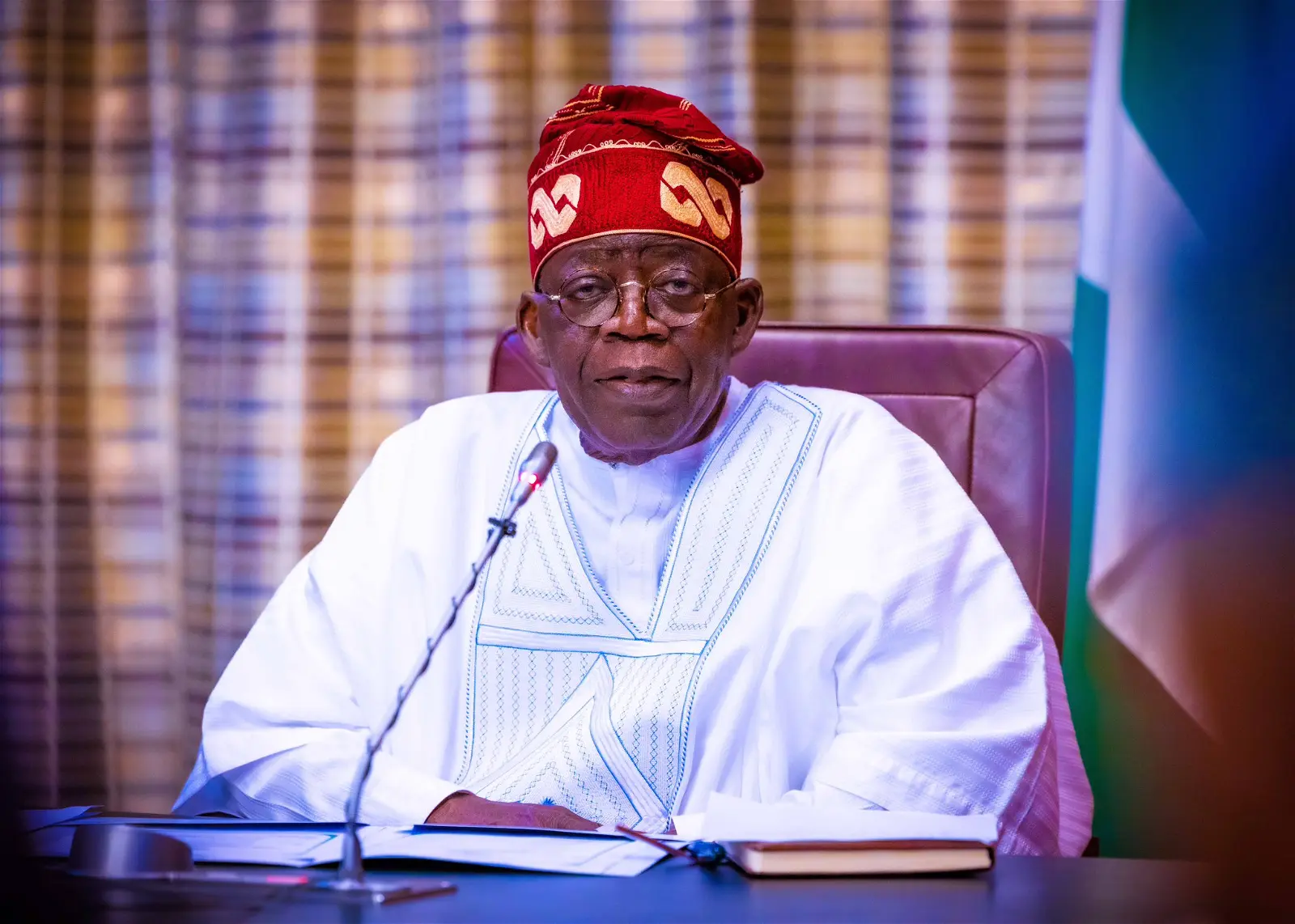
I must admit that the policies put into action by President Bola Tinubu these first few days are hard to explain. And indeed, it is not my duty to do so. But there are beginning to be some complaints and many – including myself – have cause to be wary because there are usually very powerful folks with international backing who move in whenever a new leader emerges in Africa and make leaders tread a different trajectory from their fundamental wiring.
In this particular instance, firstly, President Tinubu has shown himself to be a man of speed, resolve, grit, and a sense of urgency. Rather than go to sleep as President Buhari did for the first seven months, Tinubu has hit the ground running and is ticking all the right boxes with friends and foes alike. He briskly changed the headship of a few critical organisations like the central bank and the Economic and Financial Crimes Commission (EFCC), took some critical decisions where angels fear to tread, and then in one fell swoop, almost all the directors of Nigeria’s parastatals were relieved of their jobs, alongside all of Nigeria’s military and police leaders. People are aghast.
President Buhari, despite his fame and posture as a disciplinarian, couldn’t do a tenth of what Tinubu has done in two weeks, even though he inherited the government from the opposition. An article on Reuters was titled ‘Baba Go-Fast: President Tinubu Stuns Investors with Quick Reforms’, reminding us that the Babas that had come in the past moved at snail’s speed.
But there are a couple of overarching policies that have got me worried, and though investors and their scouts may applaud, I believe someone needs to speak up for groaning Nigerians. I have been watching for a while but have now decided to speak up. Perhaps I am paranoid. But experience tells me that administrations rise or fall with some of their first few policies. Tinubu though is a lucky man, perhaps as much as he is a strategist. Unlike Buhari, he hasn’t gone to sleep in his first moments. But he has also devalued the Naira – or rather floated it – like Osinbajo had to do when he was acting president and Buhari had been ambivalent without offering any alternatives.
Also, just like the Buhari administration, the Tinubu one has removed subsidies on fuel. We hope that this time it is final. My stated position has always been that fuel subsidy was due for removal under whatever circumstances but we ought to slow down on Naira devaluation or the now very confusing ‘floating’ of the currency. There is also the myth of a single exchange rate that liberal economists and bankers had pushed as a narrative to Nigerians but now Nigerians are wondering whether the rates will ever merge.
My next article will be reviewing and appraising the Abiru-committee economic blueprint, which is a departure from many of our, yes our, campaign document at least as far as the economy is concerned. For now, I will only say that I have found it important to do this and the next article, perhaps as a minority opinion given my all-out support for Asiwaju, and even though I am not (yet) in his de-facto team, even if I was, I could only be very junior to the persons running things for now and whose opinions are already running our lives. It is indeed harder – nay impossible – to get opinions across after one may have become part of the bureaucracy. Therefore, one may as well take advantage of the relative freedom of being part of the hoi polloi.
I will try and structure the rest of the article in a numerical manner, so as to cover some key points and make it as short as possible.
Fuel price deregulation. (Otherwise called the removal of fuel subsidy) – Whereas the NNPC Ltd was unable to explain to Nigerians how the huge subsidies came about – especially when some Nigerians challenged the organisation on the matter of the swap deals (direct sale/direct purchase) that it entered into – I have come to accept that subsidy (whatever it is), must go. By every means, we cannot continue holding down fuel prices at N195 to N220 (or barely 40 cents per litre using official rates) when everyone around us cherishes petrol like gold. I was in Kenya last month where petrol sold for an equivalent of N1,050 per litre! However, empirically, I could tell that people don’t smuggle as much as the books say they do. Whereas Nigeria uses over 400,000 barrels a day for fuel, Chad uses just 1,300, Niger 12,500, Cameroun 42,000 and Benin 44,000, and no, we don’t supply all the needs of these countries and beyond. Some of these countries are police states where you cannot just pass through any illegal cargo. So, we are down to book-cooking by those in charge. Major rip-off of taxpayers. There are other fuzzy issues around what they call subsidy, which the NNPC refused to clear. Some of them are:
I had written severally that Nigeria should allow the subsidy removal policy to settle down for a while (some months) before tinkering with naira devaluation. I observed that when the Buhari administration ‘deregulated’ the downstream sector in 2016 (and the price of fuel fell from N87 to N145, which translated then to 40 cents and 72 cents respectively), that programme was undone when the government devalued the naira from N199 to N360 to the US Dollar. The new fuel price of N145 in 2016 thus reverted from $0.72 to $0.40. Since all the talk about subsidy comes up because our fuel price is benchmarked to US dollar terms, the then-new price of N145 became untenable. NNPC thus started accumulating a new subsidy which it called under-recovery. The danger this time is that the current prices of N480 – N537 were introduced when Naira was officially N461=$1. But after the floating of the naira, we have official money at N763 as I type on June 21, 2023. Will we have another upward review of fuel prices? I warned back then that we may fall into a spiral whereby the deregulation and devaluation continue to feed on themselves like some Frankenstein monster. I hope not to be proven right.
The 43 ‘banned items’: Well, it may be good to advise the government to go the whole hog since it has started on this trajectory. It may be high time to remove any FX ban on any item and use tariffs and other barriers instead. For as long as this banned list exists, for so long will a huge demand be created for the black market. Aside from this ‘banned’ list, there are many transactions that cannot fly through official means such as illegal transactions that cannot be documented, and the speed cannot be matched. These are ready candidates for the black market.
Well, I have vented my spleen. I will hope that President Tinubu adopts President Abe Lincoln’s idea of A Team of Rivals, fostering and encouraging debates the way he did as Lagos governor. For now, the ideas in play are one-sided, pro-market and liberal. It is understood that he does not want to be postured as an-anti business leader. But some of us have followed BAT for years and read everything he ever said or wrote in terms of economic development. These are not his fundamental ideas. We need to rescue our General from the war front.
Now, is the time to start balancing ideas, cutting through the fantasies of ideologues, thinking for our people and making the lives of millions of Nigerians easier as only Bola Tinubu can. Now is the time to start rolling out the incentives for our people’s productivity, and easing the pains of these hard knock, shock treatment reforms as promised. We should recall that electricity tariffs are going up by 40% by July 1, 2023, as a result of the new value of the Naira and compounded inflation! Even I have a drowning feeling. My staff complain that transport costs have doubled.
Every self-respecting entrepreneur must raise wages (but not to the stratospheric level that trade unions are demanding). Where will the money come from? We need to get some left-of-centre ideas in as well. Like a focus on job creation in the public and private sectors, and productivity enhancement to grow the economy. The struggle is on. Let them not tag Tinubu a name that is not his.
You may like
-
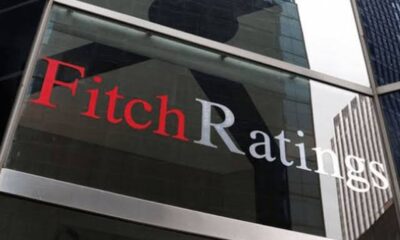

FX bank swaps account for 30% of Nigeria’s external reserves— Fitch
-


Nigeria: Civil society group sues 36 govs, Wike over N5.9tn, $4.6bn loans
-


Nigeria offers oil majors faster exit if …
-
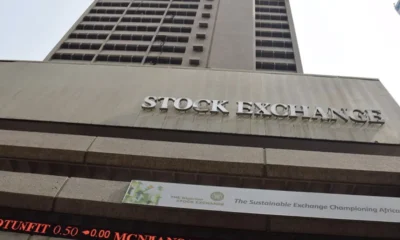

Nigeria’s Security Exchange chief to meet foreign, local crypto exchanges, others over crypto regulation
-
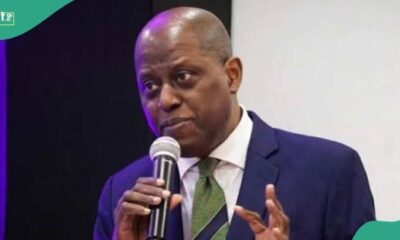

Nigeria’s central bank blames food inflation on govt’s purchase of palliatives
-
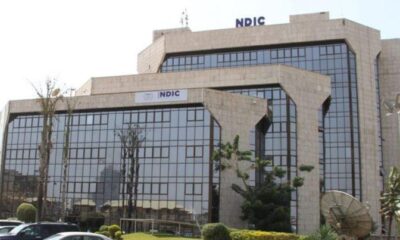

Nigeria’s Insurance Corporation raises maximum deposit coverage from N500k to N5m
Strictly Personal
This Sudan war is too senseless; time we ended it, By Tee Ngugi
Published
7 days agoon
April 28, 2024
Why are the Sudanese Armed Forces (SAF) and the paramilitary Rapid Support Forces (RPF) engaged in a vicious struggle? It is not that they have ideological, religious or cultural differences.
Not that people should fight because of these kinds of differences, but we live in a world where social constructions often lead to war and genocide. It is not that either side is fighting to protect democracy. Both sides were instruments of the rapacious dictatorship of Omar el-Bashir, who was overthrown in 2019.
Both are linked to the massacres in Darfur during Bashir’s rule that led to his indictment by the International Criminal Court for crimes against humanity. They both stood by as ordinary, unarmed people took to the streets and forced the removal of the Bashir regime.
None of these entities now fighting to the last Sudanese citizen has any moral authority or constitutional legitimacy to claim power. They both should have been disbanded or fundamentally reformed after the ouster of Bashir.
The SAF and the RSF are fighting to take over power and resources and continue the repression and plunder of the regime they had supported for so long. And, as you can see from news broadcasts, they are both well-versed in violence and plunder.
Since the fighting began in 2023, both sides have been accused of massacres that have left more than 30,000 people dead. Their fighting has displaced close to 10 million people. Their scramble for power has created Sudan’s worst hunger crisis in decades. Millions of refugees have fled into Chad, Ethiopia and South Sudan.
The three countries are dubious places of refuge. Chad is a poor country because of misrule. It also experiences jihadist violence. Ethiopia is still simmering with tensions after a deadly inter-ethnic war.
And South Sudan has never recovered from a deadly ethnic competition for power and resources. African refugees fleeing to countries from which refugees recently fled or continue to flee sums up Africa’s unending crisis of governance.
Africa will continue to suffer these kinds of power struggles, state failure and breakdown of constitutional order until we take strengthening and depersonalising our institutions as a life and death issue. These institutions anchor constitutional order and democratic process.
Strong independent institutions would ensure the continuity of the constitutional order after the president leaves office. As it is, presidents systematically weaken institutions by putting sycophants and incompetent morons in charge. Thus when he leaves office by way of death, ouster or retirement, there is institutional collapse leading to chaos, power struggles and violence. The African Union pretends crises such as the one in Sudan are unfortunate abnormally. However, they are systemic and predictable. Corrupt dictatorships end in chaos and violence.
Tee Ngugi is a Nairobi-based political commentator.
Strictly Personal
Air Peace, capitalism and national interest, By Dakuku Peterside
Published
3 weeks agoon
April 16, 2024
Nigerian corporate influence and that of the West continue to collide. The rationale is straightforward: whereas corporate activity in Europe and America is part of their larger local and foreign policy engagement, privately owned enterprises in Nigeria or commercial interests are not part of Nigeria’s foreign policy ecosystem, neither is there a strong culture of government support for privately owned enterprises’ expansion locally and internationally.
The relationship between Nigerian businesses and foreign policy is important to the national interest. When backing domestic Nigerian companies to compete on a worldwide scale, the government should see it as a lever to drive foreign policy, and national strategic interest, promote trade, enhance national security considerations, and minimize distortion in the domestic market as the foreign airlines were doing, boost GDP, create employment opportunities, and optimize corporate returns for the firms.
Admitted nations do not always interfere directly in their companies’ business and commercial dealings, and there are always exceptions. I can cite two areas of exception: military sales by companies because of their strategic implications and are, therefore, part of foreign and diplomatic policy and processes. The second is where the products or routes of a company have implications for foreign policy. Air Peace falls into the second category in the Lagos – London route.
Two events demonstrate an emerging trend that, if not checked, will disincentivize Nigerian firms from competing in the global marketplace. There are other notable examples, but I am using these two examples because they are very recent and ongoing, and they are typological representations of the need for Nigerian government backing and support for local companies that are playing in a very competitive international market dominated by big foreign companies whose governments are using all forms of foreign policies and diplomacy to support and sustain.
The first is Air Peace. It is the only Nigerian-owned aviation company playing globally and checkmating the dominance of foreign airlines. The most recent advance is the commencement of flights on the Lagos – London route. In Nigeria, foreign airlines are well-established and accustomed to a lack of rivalry, yet a free-market economy depends on the existence of competition. Nigeria has significantly larger airline profits per passenger than other comparable African nations. Insufficient competition has resulted in high ticket costs and poor service quality. It is precisely this jinx that Air Peace is attempting to break.
On March 30, 2024, Air Peace reciprocated the lopsided Bilateral Air Service Agreement, BASA, between Nigeria and the United Kingdom when the local airline began direct flight operations from Lagos to Gatwick Airport in London. This elicited several reactions from foreign airlines backed by their various sovereigns because of their strategic interest. A critical response is the commencement of a price war. Before the Air Peace entry, the price of international flight tickets on the Lagos-London route had soared to as much as N3.5 million for the economy ticket. However, after Air Peace introduced a return economy class ticket priced at N1.2 million, foreign carriers like British Airways, Virgin Atlantic, and Qatar Airways reduced their fares significantly to remain competitive.
In a price war, there is little the government can do. In an open-market competitive situation such as this, our government must not act in a manner that suggests it is antagonistic to foreign players and competitors. There must be an appearance of a level playing field. However, government owes Air Peace protection against foreign competitors backed by their home governments. This is in the overall interest of the Nigerian consumer of goods and services. Competition history in the airspace works where the Consumer Protection Authority in the host country is active. This is almost absent in Nigeria and it is a reason why foreign airlines have been arbitrary in pricing their tickets. Nigerian consumers are often at the mercy of these foreign firms who lack any vista of patriotism and are more inclined to protect the national interest of their governments and countries.
It would not be too much to expect Nigerian companies playing globally to benefit from the protection of the Nigerian government to limit influence peddling by foreign-owned companies. The success of Air Peace should enable a more competitive and sustainable market, allowing domestic players to grow their network and propel Nigeria to the forefront of international aviation.
The second is Proforce, a Nigerian-owned military hardware manufacturing firm active in Rwanda, Chad, Mali, Ghana, Niger, Burkina Faso, and South Sudan. Despite the growing capacity of Proforce in military hardware manufacturing, Nigeria entered two lopsided arrangements with two UAE firms to supply military equipment worth billions of dollars , respectively. Both deals are backed by the UAE government but executed by UAE firms.
These deals on a more extensive web are not unconnected with UAE’s national strategic interest. In pursuit of its strategic national interest, India is pushing Indian firms to supply military equipment to Nigeria. The Nigerian defence equipment market has seen weaker indigenous competitors driven out due to the combination of local manufacturers’ lack of competitive capacity and government patronage of Asian, European, and US firms in the defence equipment manufacturing sector. This is a misnomer and needs to be corrected.
Not only should our government be the primary customer of this firm if its products meet international standards, but it should also support and protect it from the harsh competitive realities of a challenging but strategic market directly linked to our national military procurement ecosystem. The ability to produce military hardware locally is significant to our defence strategy.
This firm and similar companies playing in this strategic defence area must be considered strategic and have a considerable place in Nigeria’s foreign policy calculations. Protecting Nigeria’s interests is the primary reason for our engagement in global diplomacy. The government must deliberately balance national interest with capacity and competence in military hardware purchases. It will not be too much to ask these foreign firms to partner with local companies so we can embed the technology transfer advantages.
Our government must create an environment that enables our local companies to compete globally and ply their trades in various countries. It should be part of the government’s overall economic, strategic growth agenda to identify areas or sectors in which Nigerian companies have a competitive advantage, especially in the sub-region and across Africa and support the companies in these sectors to advance and grow to dominate in the African region with a view to competing globally. Government support in the form of incentives such as competitive grants ,tax credit for consumers ,low-interest capital, patronage, G2G business, operational support, and diplomatic lobbying, amongst others, will alter the competitive landscape. Governments and key government agencies in the west retain the services of lobbying firms in pursuit of its strategic interest.
Nigerian firms’ competitiveness on a global scale can only be enhanced by the support of the Nigerian government. Foreign policy interests should be a key driver of Nigerian trade agreements. How does the Nigerian government support private companies to grow and compete globally? Is it intentionally mapping out growth areas and creating opportunities for Nigerian firms to maximize their potential? Is the government at the domestic level removing bottlenecks and impediments to private company growth, allowing a level playing field for these companies to compete with international companies?
Why is the government patronising foreign firms against local firms if their products are of similar value? Why are Nigerian consumers left to the hands of international companies in some sectors without the government actively supporting the growth of local firms to compete in those sectors? These questions merit honest answers. Nigerian national interest must be the driving factor for our foreign policies, which must cover the private sector, just as is the case with most developed countries. The new global capitalism is not a product of accident or chance; the government has choreographed and shaped it by using foreign policies to support and protect local firms competing globally. Nigeria must learn to do the same to build a strong economy with more jobs.
EDITOR’S PICK


Nigerian retail startup Renda secures $1.9m funding to drive expansion
Nigeria’s retail startup, Renda, has announced securing a $1.9 million pre-seed round of equity and debt funding to enable it...


Burna Boy emerges Africa’s top earning artiste in the US from tours, concerts
Nigerian Afrobeats sensation, Burna Boy, has emerged as the first African artiste to stage the highest-grossing arena concerts and tours...


Nigeria’s 4x400m mixed relay, 4×400 teams qualify for Olympics
Team Nigeria on Sunday morning booked two places at the upcoming Paris Olympics Games in the Mixed 4x400m relay and...


FX bank swaps account for 30% of Nigeria’s external reserves— Fitch
Global credit ratings firm, Fitch, has claimed that approximately 30% of Nigeria’s external reserves is comprised of foreign exchange (FX)...


Nigeria: Civil society group sues 36 govs, Wike over N5.9tn, $4.6bn loans
A civil society organisation in Nigeria, Socio-Economic Rights and Accountability Project (SERAP), has dragged the 36 state governors of the...
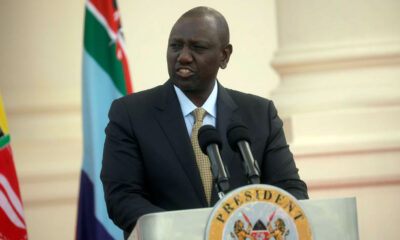

Kenya: President Ruto hints at ‘dire’ weather outlook as Cyclone Hidaya nears
President William Ruto has announced that the severe rains that have been plaguing Kenya for the past several weeks resulting...
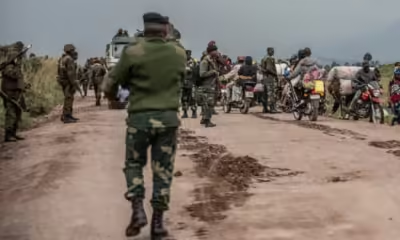

Again, Rwanda denies it attacked displaced persons in DR Congo
For the sixteenth time, Rwanda refuted US charges on Saturday that its troops attacked a camp for internally displaced persons...


Nigeria offers oil majors faster exit if …
Oil-rich West African country, Nigeria, has offered major oil companies, such as Exxon Mobil and Shell, that planned to leave...


Nigeria’s Security Exchange chief to meet foreign, local crypto exchanges, others over crypto regulation
On Monday, local and international cryptocurrency exchanges will meet with Dr. Emomotimi Agama, the recently appointed Director General of the...


Rhino Resources, BP-Eni JV sign agreement for Namibia offshore licence
Rhino Resources Namibia and a BP-Eni joint venture have agreed to share a 42.5% stake in a block located in...
Trending
-

 VenturesNow21 hours ago
VenturesNow21 hours agoNigeria offers oil majors faster exit if …
-

 Sports1 day ago
Sports1 day agoKenyan footballer arrested over brutal robbery, murder case
-

 Culture1 day ago
Culture1 day agoMeet the Ugandan tribe where bride’s aunt must ‘test’ groom’s manhood before marriage
-

 VenturesNow21 hours ago
VenturesNow21 hours agoNigeria’s Security Exchange chief to meet foreign, local crypto exchanges, others over crypto regulation


